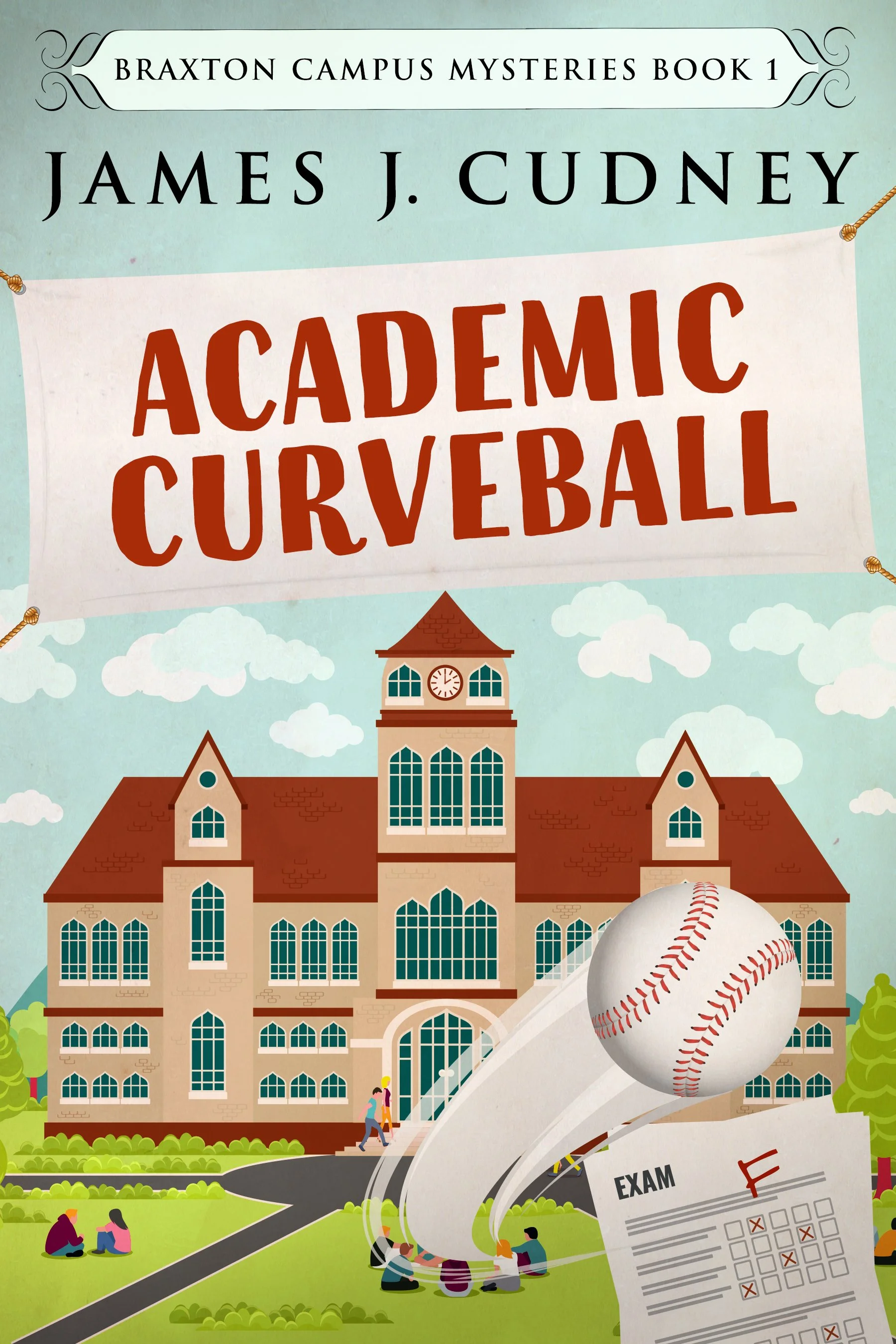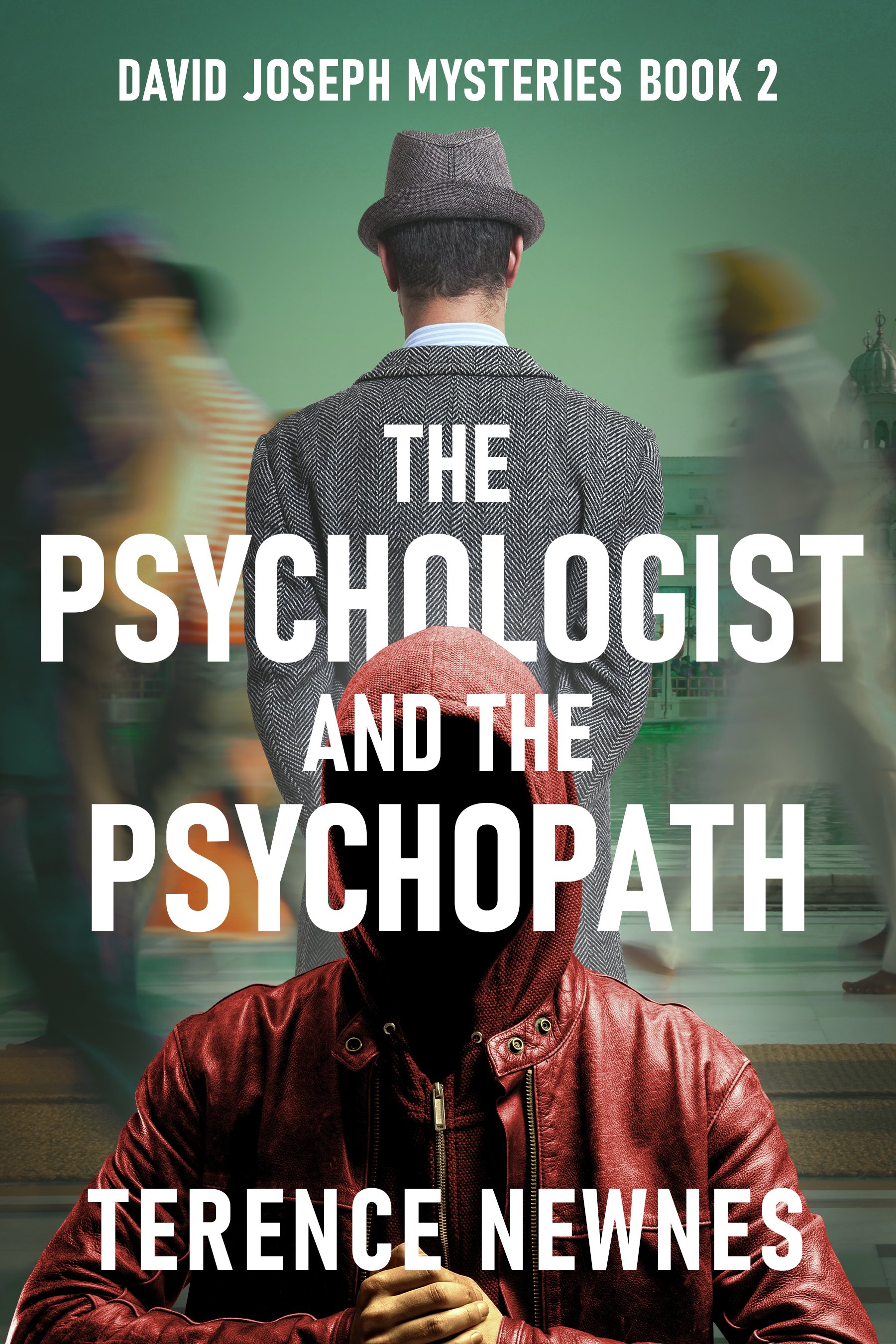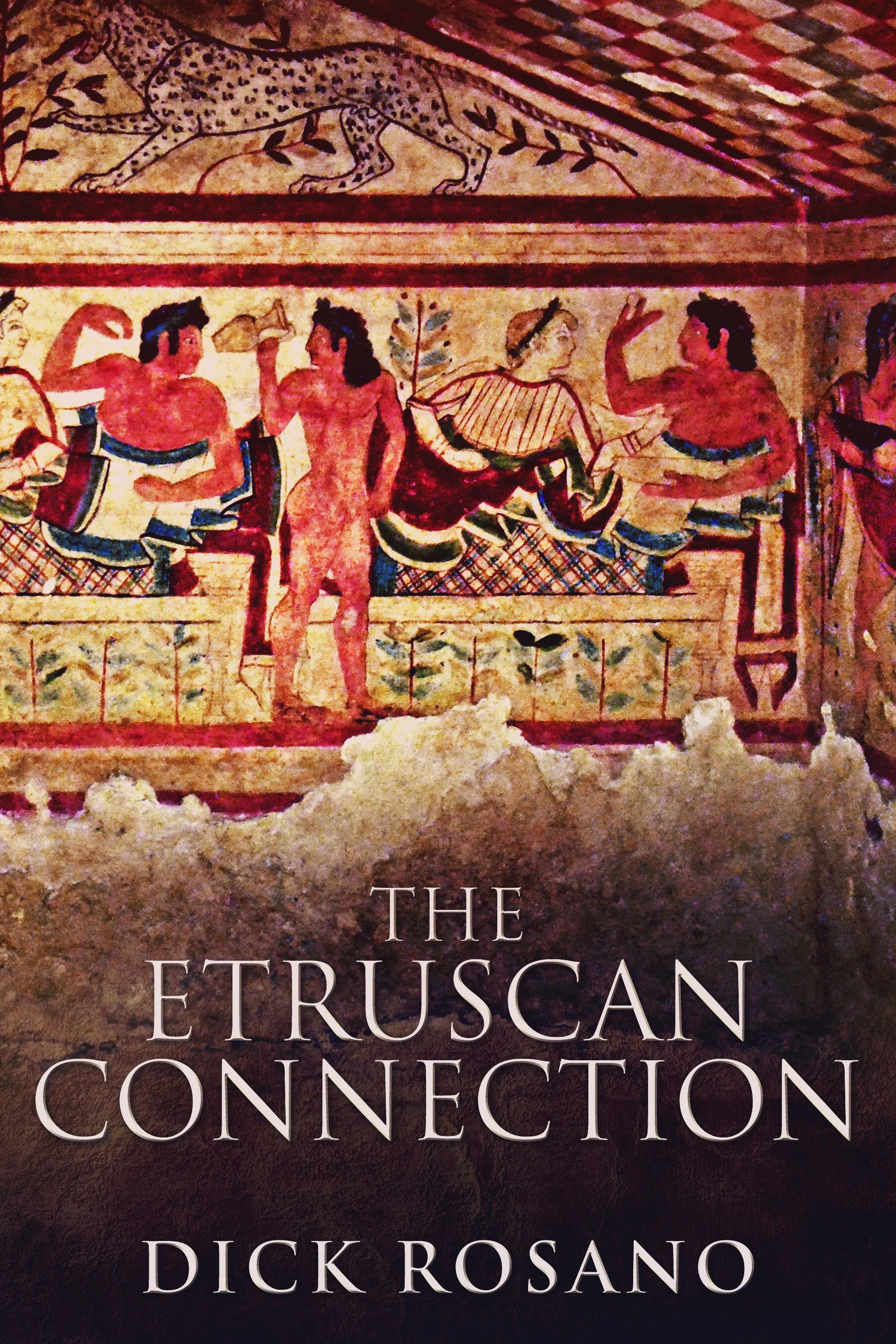The Paris Connection (Darren Priest Mysteries Book 4)
Book summary
A centuries-old collection of Renaissance art and letters, known as The Paletti Notebook, has resurfaced, igniting a global race among powerful nations to possess it. As secrets of incalculable value come to light, Darren Priest must navigate dangerous adversaries to secure the portfolio and save lives in The Paris Connection.
Excerpt from The Paris Connection (Darren Priest Mysteries Book 4)
The Federalist
April 11, 2021
The taxi pulled away from the curb at Dulles Airport, swung into rush hour traffic and carried Priest and Aggie away from the bustle of incoming travelers crowding the cab stand. The flight had been an easy one from Vienna, a route that Priest had taken many times, and traveling in midday as they had there was no need to sleep en route; so they could sit, peruse the movie options on the back-of-seat video display, and enjoy a few glasses of wine. The simple fare that the airlines offered in coach class was uninspiring, but they knew they could make up for it later at a bar in downtown Washington once the cab reached their destination.
“That’ll be seventy-three dollars,” the cabbie said braking to a halt on M Street in Georgetown. Priest paid in cash according to habits he acquired in numerous clandestine missions. He avoided using a credit card even when there would be no question of his motives, destination, or identity – just a habit developed over years of covert ops.
The two men slipped through a gap between the stores, headed to the alley, and settled into a booth in The Federalist, a dimly lit watering hole that looked like a speakeasy from the days of Prohibition. Priest was a regular at this particular bar, although the bartenders avoided acknowledging familiar faces. It was a custom of the establishment to omit greetings and treat everyone like a first-time patron and, at the same time, respect their privacy. Priest liked that, appreciated the ease of remaining somewhat nameless, and knew it enhanced the feeling of anonymity on each visit.
He and Aggie blended easily into the eclectic crowd of patrons. Priest wore a thin sweater with arms pulled up to his elbows and comfortably worn jeans. His hair was curly and left full by Sue, his haircutter, and his face was clean shaven though stubbly from the long day of travel. Aggie was a bit a hippie, his salt-and-pepper hair worn in a long braid hanging down past his shoulders. His wide shoulders seemed just right for the flannel shirt he wore stuffed into the waistline of distressed jeans.
The waiter answered their order by delivering two beers to the table. A basket of chips and bowl of salsa filled out the space of the little booth they shared, and the two men munched and sipped for a few minutes before returning to their conversation.
“So…” Priest began, “what do you think is in that encrypted text?”
“Hell if I know. But my money’s on what that fat, self-important guy you met at Dulles cares so much about.”
Priest stifled a laugh but couldn’t resist smiling at Aggie’s description of the man he knew to be Matthew Bordrick.
“You mean he doesn’t care about the priceless art and letters?” Priest said with a slight chuckle.
“He doesn’t impress me as someone I’d run into in a museum or a lecture about Late Medieval literature, I’ll say that.”
“It seems to be of German origin,” continued Priest. “The encrypted text, I mean, not the guy. Maybe not Germany, per se, but from someone who speaks German.”
“True, but let’s not jump to any conclusions yet. Don’t want to give in to confirmation bias,” Aggie added. He spoke like a seasoned investigator, referring to the problem incurred too often when crime solvers zero in on a conclusion too early and find that all the facts squeeze neatly into their theory.
“Can we just say, though, that the art is not his thing and move on?”
“Yeah,” Priest replied, “I think so. Maybe he would care about the monetary value of the contents, but that alone doesn’t rise to the level of his serious interest here.”
“So, then, the cypher.”
“Yep.” “It’s old,” Aggie declared between sips of his beer, “but not like that other stuff in the Paletti collection.” “No. Clearly not.”
“How old?”
Waiters at The Federalist didn’t just stop by your table so when Priest wanted to refresh his beer, he had to wave his empty glass toward the bartender to make his point.
“I don’t know,” he suggested after getting his order noticed. “I’m not an expert in aging documents, although I could tell that the shards of letters and scribbled drawings were obviously very, I mean very old. The encrypted text was on solid paper stock and, although it showed decades of wear, I would guess from the construction of the paper that it was modern.”
“Like how modern?” asked Aggie. “A few years?”
“No, older than that.”
The waiter replaced Priest’s empty glass with another filled with a foaming dark Guinness Stout.
“What do you remember about your elementary school papers, like report cards?” he asked Aggie.
“Not much to be proud of,” his friend chortled, then sipped his beer.
“No,” Priest said, laughing, “not the content, although I doubt the teachers treated you too harshly.”
“You mean the sisters, the nuns,” Aggie clarified. “They treated everyone harshly, good grades or not.”
Still, he couldn’t suppress a grin.
“Yeah, okay,” said Priest, “but let’s get back to the point. What do you think of when you handle a decades-old report card?”
“Crinkly,” said Aggie.
“Crinkly?”
“Yeah, crinkly. Substantial paper but old enough that if I wasn’t careful, it could crack or rip easily.”
“That’s how I felt about the cypher text in the Paletti Notebook.”
“So, it’s decades old, not centuries,” Aggie said with some confidence.
“Yeah, we can check that with experts later.”
“No, we can’t,” Aggie countered. “Remember, we gave the originals to the fat guy. Alana has photographs of the originals, but anything we have to show to paper experts will not include the tactile sense.”
“By the way, what’s his name?” Aggie queried.
Priest dodged the question.
“Yeah, right,” Priest said, without responding to Aggie’s question. “So, our memory of the paper itself is important, at least as much as we can tell these experts…”
“That we don’t have yet,” Aggie said, sipping his beer.
“Yeah, that’s next.”
The two men sat in silence for a moment considering next steps, enjoying the quiet obscurity of the bar. The Federalist was frequented by city insiders, not necessarily spies but people with alternative lives that they believed would be best kept secret. The dim lighting and cozy booths carried the theme, made even more real by the patrons’ habit of not making eye contact with anyone beyond their table.
The toll of the long flight from Vienna slowed Priest and Aggie, slowed their conversation and left them thinking about turning in for the night. Paying the tab, they left the bar, stepped to the curb, and hailed a taxi. Priest’s condo was in Bethesda, outside the city itself, so sleep came easily as they settled into the back seat of the cab for the forty-five-minute ride to his place.
In the twilight of sleep he enjoyed in the backseat of the cab, Priest’s mind ventured back to earlier times and earlier meetings.
Tall Cedars
October 12, 2018
Military service in faraway countries takes a toll on the men and women who are sent to protect America. Separated from family and friends, living in a war-time environment, and trying to understand and abide by the cultural differences in their new land – all conspire to create a witch’s brew of fear, stress, and worry. Worry that their families would falter without them, that their children would forget them, and that the citizens at home might not respect their sacrifice. All these things combine to create an inevitable feeling of estrangement and trauma.
Add to that the constant threat of being the next victims of the war their leaders had sent them to fight.
Priest and Aggie didn’t know each other in Afghanistan, but they both experienced the same trauma and stress.
Arnold “Aggie” Darwin had spent much of the Afghanistan war as a drone pilot, not in-country but assigned to a war room in the States. He volunteered his talents and service, and he maintained his belief in the American enterprise in Afghanistan. But a few years of attacking villages, supply trucks, and individuals from a drone – what he called a “soulless death machine” in the sky – sapped his belief and dragged him closer to despair.
“Killing from a distance is worse than killing up close,” he had said one afternoon. “You can’t pay your respects for an enemy you never see.”
Tall Cedars is a little-known commune in rural Virginia, a support group and collective that focused on the needs of returning veterans. War-torn service members make up a large percentage of residents at this outpost. Some are sent by compassionate family members or knowledgeable counselors; others are self-referred. Aggie had heard about Tall Cedars through rumors – the military’s coconut telegraph – and drove there one Sunday afternoon.
After six years in military intelligence, Darren Priest separated from service, a mere eight months after his return from the war. He maintained an outward calm – a necessary “suit of armor” as he called it – but it failed to calm the storms within.
The war itself was terrible to manage much less explain to himself and others, but his role as an interrogator often felt like sandpaper on his emotions. He had the unusual duty of questioning not only captured enemy combatants but also American GIs and contractors whose activities raised suspicions about them. Priest showed no outward sympathy for his subjects, but he sometimes wondered whether his orders to interrogate a particular person were driven by actual circumstances or by his superiors’ personal agendas.
Priest was as patriotic as the next person, but he was also wary of politicians – and the rich donors that pocketed these politicians – and he dealt with the internal conflict without any professional consultation. That is, until he signed the separation papers and left the service. The next day he contacted a social worker he knew from college, who referred him to a psychologist working with military veterans, who referred Priest to Tall Cedars.
Priest was a prime candidate for such an environment. He was a long-time peacenik, channeling the anti-Vietnam teachings of his parents’ generation, but he was an unusually gifted interrogator, someone who possessed intangible skills in ferreting out misinformation in the presence of friend or foe. This rare skill was noticed by a former commander, Sergeant Randal, who had been directed to assemble a squad of similarly exceptional recruits to staff the Top Secret “Operation Best Guess.”
Despite the cheeky moniker, what Priest and his fellows did had nothing to do with guessing. They were adept at picking up nonverbal signals from those they interrogated, signals that didn’t always point to untruths but flagged weaknesses in the narrative, weaknesses that could lead to a carefully constructed string of questions that, if pursued with caution, would unravel the “story” spun by the subject.

















Praesent id libero id metus varius consectetur ac eget diam. Nulla felis nunc, consequat laoreet lacus id.